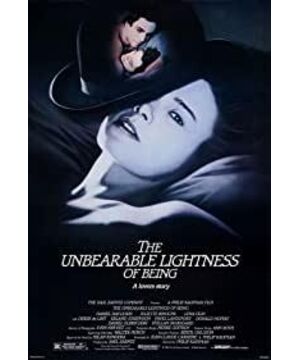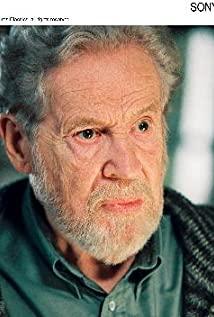Teresa is sincere, tolerant, brave and talented. She captured real moments with her camera in the Czech Republic and risked her life to transmit the real scenes of the Soviet armed invasion of the Czech Republic to foreign countries. From Teresa, we You can see an honest heart and independent judgment, but Teresa like this is not happy. Teresa's unhappiness was ostensibly because she couldn't stand her husband Thomas' cheating, but in essence it failed to jump out of the common misleading perception of love constructed by the Czech traditional society at that time, which overemphasized romantic love and its consequences. The goodness of the resulting marriage, and the one-sidedness attributed to the ugliness of sex. Under this recognition, traditional women are constructed as pure and asexual in the process of socialization. Teresa doesn't understand that Thomas can have sex without love, because of her habitual disdain for sex itself. Love and responsibility are an integral part of her life.
By contrast, Sabina seems happier, in large part because she is able to step outside of that perception and face her desires. The contrast between Sabina and Teresa is very subtly reflected in the scene where the two take nude photos of each other, nudity, representing social taboos, is the embodiment of sex, Sabina has no resistance to it, and puts her own body. Presented as a work of art, while Teresa is very shy, under the guidance of Sabina, Teresa seems to be able to break this social taboo she is accustomed to and laugh happily with Teresa , But at this time, Franz's sudden visit made Teresa hide herself embarrassedly and fled away in an instant, and the inherent social concept once again prevailed, making her firmly believe that she could not bear the ligtness, the freedom, to return to the Czech Republic. But the darkness after the failure of the Prague Spring in the Czech Republic could not tolerate Thomas and Teresa. The two could only hide in the fields and eventually died in an accident. Thomas and Theresa were two individual lives that could play a greater value, but they did not escape the shadow of a political rule that ignored individual values.
Sabina is the most free and easy character in the movie. She understands the true connotation of love, sex and politics, as well as the peak and the end of happiness. She resolutely leaves when Franz chooses herself, which seems to be for Franz. The cruel abandonment is actually a proper break in the relationship between the two. What she values is freedom and art, and what she constantly escapes is the sweet trap of love, the inherent value of society, so she and her confidant Thomas can only be separated from each other, and what she has to bear is life. loneliness.
Everyone has only one life, light and heavy, sex and love, betrayal and loyalty, liberalism and collectivism, these series of oppositions shape the value of the individual, and also tie the real freedom of the individual. In the binary opposition The choice is essentially meaningless, and the value of life simply standing in line is incomplete. Choosing one side will inevitably mean giving up the other side and stifling other possibilities of life. A society in which human beings are generally happy will inevitably escape. A dualistic society, however, is currently out of reach, and its establishment is inseparable from the subversive reconstruction of marriage and family.
————————
Original works, please indicate the source for reprinting
View more about The Unbearable Lightness of Being reviews











